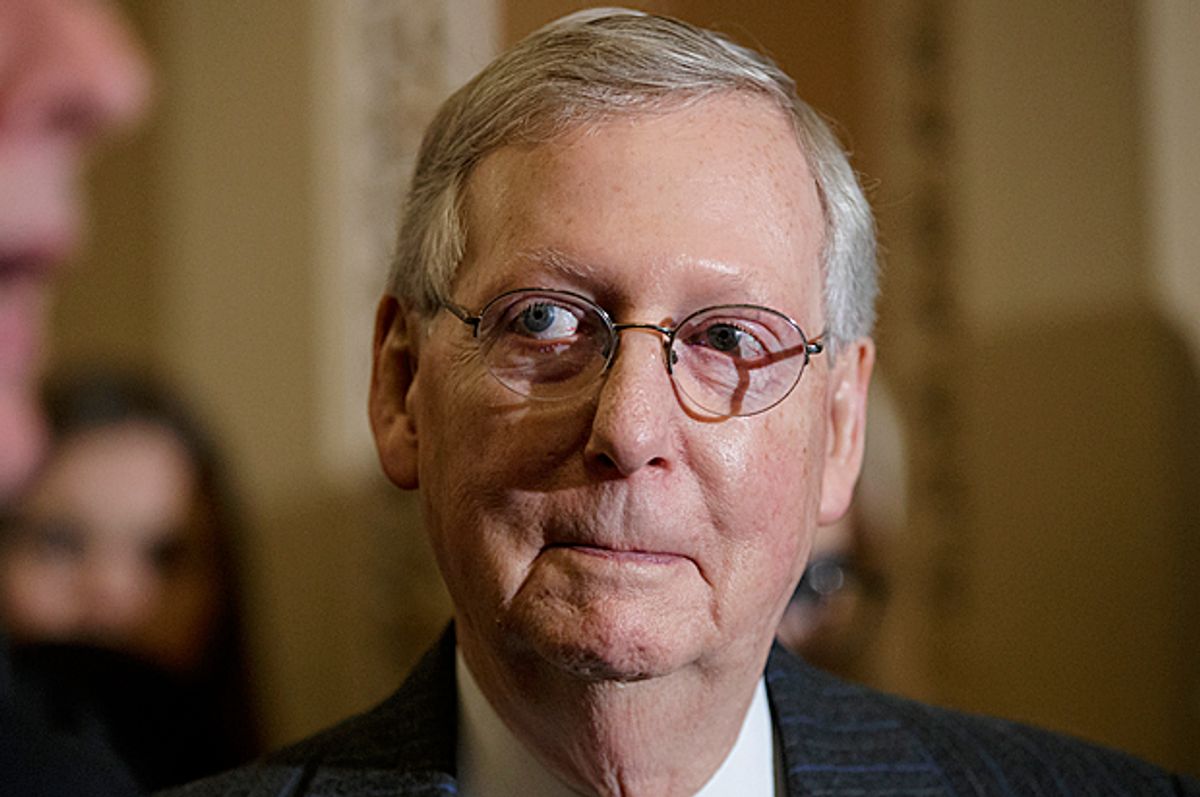The Republican leadership in the Senate is caught between a rock and a hard place when it comes to health care legislation.
The GOP has spent the better part of 10 years getting its base whipped up with the thought of how terrible deal Obamacare is. It's been an effective strategy to channel some of the conservative anger into votes. But now that the Republicans actually have the responsibility of governance, their base mobilization technique is coming back to harm them. Now that the rest of America is starting to pay attention to the legislation the GOP is pushing to replace Obamacare -- the polling isn't looking pretty. The constituent events various members of Congress have been holding have turned out even uglier for the party.
The tension between placating the party's anti-government activist base and avoiding the ire of the vast majority of the rest of America is why we're not likely to see or hear much of anything from the Senate GOP on their plans to repeal and repeal the Affordable Care Act until the last possible minute.
After the House Republicans' first attempt to repeal the law went down in flames before even going to a vote thanks to a terrible score from the Congressional Budget Office and some limited public debate, the Senate GOP is vowing to avoid the same mistakes. That's why Mitch McConnell, R-K.Y.,, the party's leader in the chamber has been vowing to keep internal negotiations secret, away from the public eye and also away from committee hearings.
"We aren't stupid," an anonymous Republican Senate staffer told the website Axios. "We are still in discussions about what will be in the final product so it is premature to release any draft absent further member conversations and consensus."
It's starting to become more likely that the Senate GOP has decided that passing a bill may be impossible and that the best result may be to craft some legislation that is designed to fail simply as a show vote. Party leaders are now openly talking about the idea.
"I still think in the end there is a huge reason why we have to get to 50 on this," Sen. John Thune of South Dakota, one of McConnell's top lieutenants, told CNN on Monday. "Obviously, we're going to have a vote on this one way or the other. But if we don't pass something and we go into '18, you know, it's on us to try to get this fixed."
If the show vote strategy is settled upon, it remains to be seen whether the bill that's destined to fail will be one that conservatives will vote against or one that moderates will decline to endorse.
While some of the party's more far-right members like Sen. Mike Lee of Utah and Sen. Rand Paul of Kentucky have been complaining about the bill outline that's still in negotiation, according to Texas Sen. John Cornyn -- the second-ranking Republican in the chamber -- the Senate legislation amounts to "80 percent of what the House did." If that ends up being the case, it's possible that the bill may become something that both the conservatives and their more moderate antagonists can oppose.



Shares